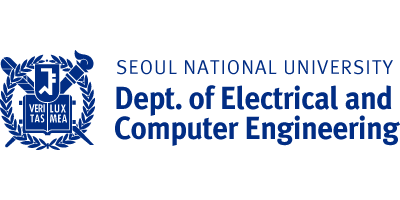Professor Hyuk-Jae Lee says, “Fostering semiconductor talents is not far from SNU’s educational philosophy.” (Joongang Sunday, 2022.04.30)
With the advent of cutting-edge technologies such as 5G mobile communication, self-driving cars utilizing AI, and IoT, the importance of semiconductors has become greater than before.
Semiconductors have become the backbone that will lead the 4th industrial revolution and the core of the international competition for cutting-edge technologies. As a result, major countries are fiercely fighting for supremacy over the semiconductor industry. Korea has no warriors to fight through this battle. There is an extreme shortage of semiconductor experts. For this reason, SNU is again carrying on with the establishment of a semiconductor department. However, the said department is a “contract department” that operates based on contracts with an external company. Since the quota of universities in the capital is limited, there is no other way to establish a semiconductor department other than through the establishment of a contract department. 
Hyuk-Jae Lee, Chair of the SNU Department of Electrical and Computer Engineering
SNU attempted to establish a semiconductor contract department in 2019, but it failed. Regarding this, Lee (57, photo), a professor at SNU (chair of the Department of Electrical and Computer Engineering), said, “I don’t think that developing human resources to lead the semiconductor industry, which is the backbone of the Korean economy, is far from SNU’s educational philosophy.” He also emphasized that “The Korean semiconductor industry is being threatened by Taiwan, the United States, and China, and it is a dereliction of duty to not take any action”. Professor Lee worked as a senior researcher at Intel USA, and is currently the director of the System-IC Industry Promotion Center and the chair of the SNU Department of Electrical and Computer Engineering. He was interviewed on the 26th and questions regarding the current situation and the reason behind the failure to establish the semiconductor contract department.
How was the atmosphere at the time of the start of the establishment of the contract department?
“There was a lot of opposition within the school. It’s my fault for not being able to sufficiently convince professors from other departments. However, there were baseless arguments that establishing the contract department would benefit certain professors. If the contract department were to be established the number of quotas would increase, and there would be no need to decrease the quota for other departments.”
What was the problem?
“The argument that the establishment does not conform to the educational philosophy of our school. There were concerns that SNU, which is an educational facility that strives for verity, would become a commissioned education institution for employment. It is true that having a job guaranteed upon admission determines a large path of the student’s career path. The contract department also has to consult with the company on the educational curriculum and re-sign contracts every 5 years. For these reasons, there was a view that the students in the contract department will become participants of a commissioned educational program, rather than students at Seoul National University”.
It is being said that the establishment is being carried forward again recently.
“ I am meeting with professors from other departments and persuading them. The goal is to complete internal persuasion within six months. I am making it clear that the purpose of the establishment is to nurture talented people who will lead the Korean semiconductor industry”.
What were your reasons for not giving up on the establishment of the semiconductor contract department?
“The sense of urgency for the need to strengthen the competitiveness of the Korean semiconductor industry. The semiconductor industry is the backbone of the Korean economy of the 21st century, but the current situation is not promising. The domestic industry is being threatened by Taiwan, the United States, and even China. Even in the foundry (consignment production) sector alone, Samsung Electronics is two generations behind Taiwan’s TSMC. Falling behind by more than a single generation renders competition for supremacy virtually impossible”.
Why is the industry falling behind TSMC?
“I think the lack of human resources is having an impact on our semiconductor industry. The demand for those that majored in semiconductors is high, but the quotas for related departments in universities did not increase accordingly, leading to a long-term phenomenon where the supply does not meet the demand. It is difficult to find people in the industrial field, and it is even more difficult to find doctoral-level researchers who would enhance the competitiveness of the semiconductor industry at the national level. Even if you only consider SNU’s case, the number of doctoral candidates for semiconductor doctoral programs is less than the assigned quota, and this has been going on for many years. Someone has to complete his doctoral program and produce research results in order to innovate the industry, but this chain of events is not happening”.
Could the problem be solved with the establishment of the contract department?
“It would definitely be of assistance, although the impact may not be substantial. The establishment could be said to be the only way for universities within the capital to increase their quota for undergraduate admissions. It is expected that the increase in quota for undergraduate courses in the field of semiconductors would increase the number of students applying for master’s and doctoral programs. Furthermore, since the purpose of the establishment is to develop the necessary human resources for the development of the Korean semiconductor industry, the contract will not be signed with a single company. A structure that does not penalize students for applying to graduate programs instead of being employed by the company is also being considered. We will argue that the growth of the Korean semiconductor ecosystem will be beneficial to the companies as well.”
Wouldn’t the problem be solved if the government adjusted the quotas accordingly?
“That is the best solution. If the quota for semiconductor-related majors were to be increased, there would be no need for SNU to promote contract departments. Companies also say that it is more urgent to increase the quota rather than to expand R&D expenses support or tax credits. This means that the research funds can only be spent when there is enough manpower to carry out the research. Thus, we can’t simply hope the government would solve the problem and take no actions.”
Source: https://ece.snu.ac.kr/community/news?bm=v&bbsidx=52447
Translated by: Do-Hyung Kim, English Editor of the Department of Electrical and Computer Engineering, kimdohyung@snu.ac.kr


